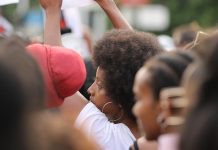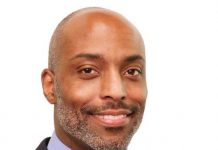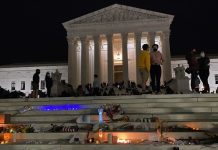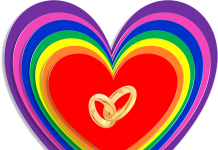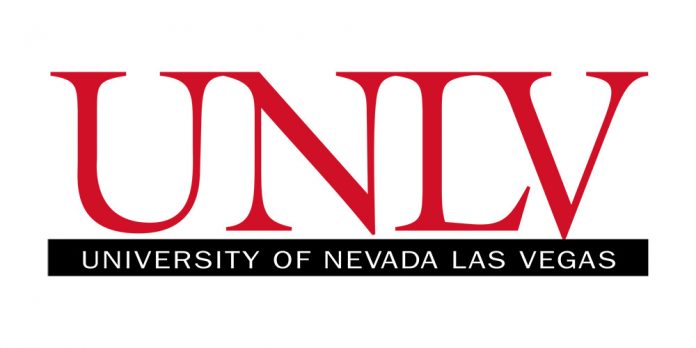There is ample reason to laugh and cry during “Pride,” the 2014 British fi lm based on the real life, and surprisingly beautiful, alliance between Welsh union miners and gays and lesbians during the 1980s. Both minority groups were battling the same oppressor and learning to understand one another.
My emotional outburst came at the reclamation of the word “pervert” (Pits and Perverts), rendering powerless the opposition’s name-calling.
It hit me hard. It hit me proud because I remember when we became queer, when “We’re here. We’re queer. Get used to it!” parade marchers became self-identified queers in the world. Queer Nation rose. Queers in my community were seeking others to kiss en masse in public spaces, making the invisible visible at a time when so many in the community were dying and the world was looking away.
I’m just not sure that we could have imagined in the ‘80s that “queer” would ever be mainstreamed, even trendy, as it is today.
With some of the community still offended by the word and others grappling with new terminology — “intersection” “cis,” etc.) — the reality is that empowerment in identity is changing so much that simply being “queer” is becoming passé among younger groups. There is a lot confusion out there, a lot of in-fighting and a lot of need for open conversation.
So, it was refreshing when the Human Rights Campaign’s panel, “Let’s Talk about the Q” at the Barrick Museum of Art last month, drew an audience for a word that is developing and swerving in diff erent directions sometimes faster than everyone can keep up with as the perpetually expanding “alphabet soup” shapes and evolves. Regarding the Q itself, “the majority of our seniors fi nd it off ensive and don’t want it to be used,” said panelist Holly Reese, manager of senior programs and community engagement at The Center, adding that 50 is often the dividing line for the term, particularly for those who remember the word’s brutality.
When asked what “queer” means to her, Reese said, “I think of queer as being extraordinary. People in the queer community have extraordinary life experiences. We have to develop extraordinary skills … We’re unseen and invisible and then get pushed back when we make ourselves visible.”
That extraordinariness reverberated throughout the discussion: To Adelaida Rama, “queer” is about reclaiming agency reclaiming sexuality and about empowerment.
To Ana Flores of the Human Rights Campaign, “queer” not only brings to mind the radical and political, but invites her to think about her identity and gets into other nuances. And listening to Erika Abad, a UNLV gender and sexuality studies professor, talk about how she waited to come out until she “could afford to lose everyone” in her life, (setting herself up financially, independently and professionally before coming out), reminds us that we do live extraordinary lives.
Younger generations may be living a different reality.
They’re coming of age when gays can marry, when “queer” has social cache and when media and pop culture is more friendly to us.
But the truth is that non-white queers dealing with double oppression, and trans queers (still without our community’s full acceptance as Q) are living in danger.
As Abad said, “Maybe gay and lesbian people can get married. But trans people can’t afford to get health care.” “We live in a white linear society,” said Reese, who, like the others on the panel, is a queer woman of color. “Spectrums are very linear. We really need to think in a more cyclical way.”
With Trans Lives Matter, Blue Lives Matter, Black Lives Matter, and other groups that matter: “What we’re doing is fighting for our voice. Who gets to be in the front of the line?” she says. “In a circle, people can stand in unity.”
When Reese said she preferred the term “comrades” to “allies,” I thought about that movie “Pride” and two very different communities uniting and supporting and promoting each other’s causes as if they were their own








